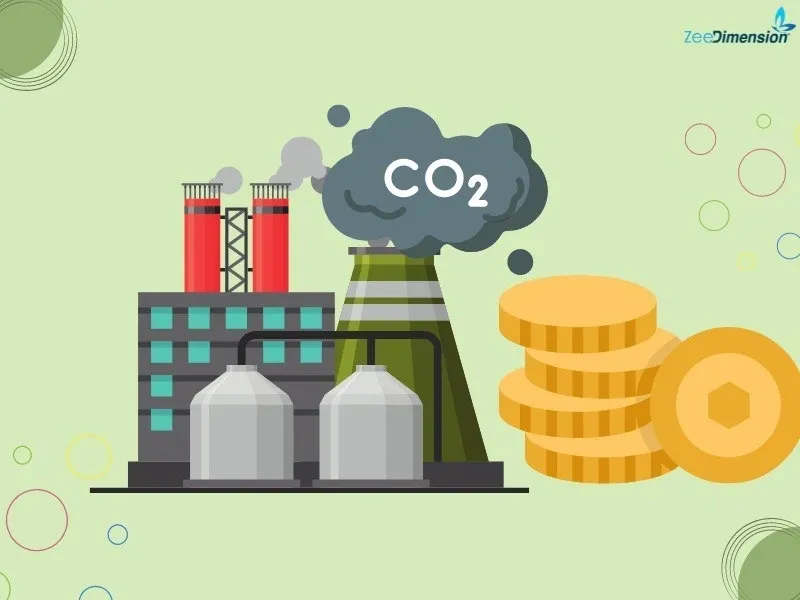
How blockchain-based tokenization can revolutionize carbon markets with real-world numerical scenarios.
What is Carbon Credit Tokenization?
Carbon credit tokenization converts carbon credits into digital tokens on blockchain platforms. Each token represents a specific amount of CO2 offset or reduced, making the carbon credit market more transparent, efficient, and accessible.
What are the benefits of tokenization?
1- Transparency: Blockchain technology offers a transparent and unchangeable ledger for documenting carbon credit transactions. Each transaction is captured in a block, which connects to the previous one, forming a publicly accessible and verifiable chain of records. This creates a clear, traceable history of all carbon credit activities, simplifying the auditing and verification of credit authenticity. Such transparency fosters trust among market participants and regulatory agencies.
2- Liquidity: By tokenizing carbon credits, access to a worldwide marketplace is made possible through their digital trading on blockchain platforms. Compared to traditional marketplaces, this makes buying and selling quicker and simpler. Increased liquidity makes it easier for businesses to manage their portfolios and attracts investors to the carbon market by facilitating the easier conversion of carbon credits into cash.
3- Lower Costs: Intermediaries are not as necessary with blockchain technology. Additionally, trading becomes more cost-effective for all parties involved when smart contracts are used since they automate procedures, cutting down on administrative expenses and speeding up transactions.
4- Fraud Prevention: The potential of blockchain technology to avoid fraud is one of its primary advantages. Double-counting, which happens when the same credit is sold more than once, is essentially eliminated in the world of carbon credits by blockchain. Tokenized carbon credits are distinct and non-replicable, guaranteeing their authenticity and accurate accounting. The integrity of the carbon market is strengthened and the veracity of carbon credits is protected.
3 Scenarios Utilizing Carbon Credit Tokenization:
Scenario 1 – Small Business Offsetting Emissions
ZD Company wants to offset 1,000 tons of CO2 at $25/ton.
-
Traditional market cost: $27,500 (including $2,500 transaction fees).
-
Tokenized market cost: $25,250 (only 1% transaction fee).
-
Savings: $2,250
Scenario 2 – Large Corporation’s Annual Offsetting
ZD Company, a large corporation, plans to offset 100,000 tons of CO2 at $30/ton.
-
Traditional market total cost: $3.3 million (with 10% transaction fee).
-
Tokenized market total cost: $3.015 million (only 0.5% transaction fee).
-
Savings: $285,000
Scenario 3 – Carbon Credit Trading for Profit
Investor John buys 10,000 carbon credit tokens at $20/ton, total investment: $200,000.
-
Price rises to $35/ton. New value: $350,000.
-
Traditional market net profit: $132,500 (after $17,500 broker fees).
-
Tokenized market net profit: $149,450 (minimal $550 transaction fees).
Economic and Environmental Impact of Carbon Credit Tokenization
Increased participation:
The process of tokenization reduces the obstacles that prevent companies and individuals from entering the carbon credit market. By facilitating the purchase and sale of carbon credits, a greater number of individuals will be able to participate in the offsetting of their emissions. The market for carbon credits may rise as a result of this engagement, which could encourage additional funding for environmentally friendly initiatives and innovations.
A greater reduction in greenhouse gas emissions can be achieved if more entities can offset their emissions. This widespread engagement helps expedite global efforts to tackle climate change, as more firms and individuals take responsibility for their carbon footprints.
Reduced CO2 emissions :
Broader market participation means that more carbon credits are being traded and utilized, leading to a greater overall reduction in CO2 emissions. This contributes to achieving international climate goals, such as those outlined in the Paris Agreement, by ensuring that emission reductions are happening on a larger scale and at a faster pace.
Global accessibility
There are major environmental and economic effects of tokenization. Smaller companies and individuals throughout the world can now engage in the carbon credit market thanks to the democratization of access, which promotes a more competitive and diversified market that encourages efficiency and creativity in carbon reduction initiatives. Additionally, this accessibility on a global scale opens up new avenues for economic development in areas that were not previously included in the carbon market. Tokenization guarantees that efforts to reduce emissions are not limited to particular industries or locations, which is good for the environment. More equitable global distribution of the burden of addressing climate change is made possible by this increased accessibility, which produces more thorough and efficient environmental results.
In conclusion :
Carbon credit tokenization marks a significant change in our approach to sustainability and climate change. By utilizing blockchain technology, it improves transparency, liquidity, and cost-effectiveness in carbon markets, enabling more participants to engage in emission reduction efforts. This process has substantial economic and environmental benefits, as it increases market participation, reduces CO2 emissions, and democratizes access to carbon credits, playing a vital role in advancing global sustainability initiatives.







